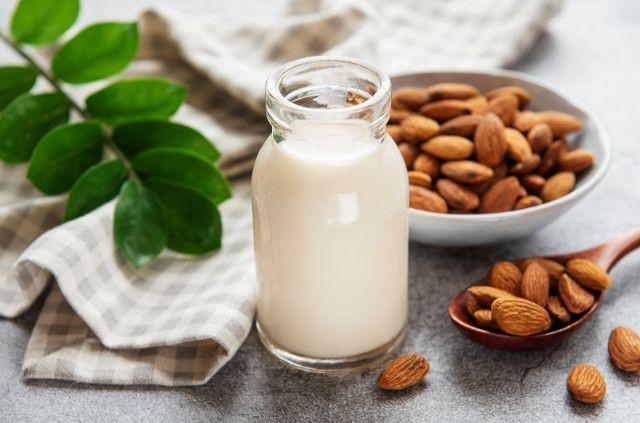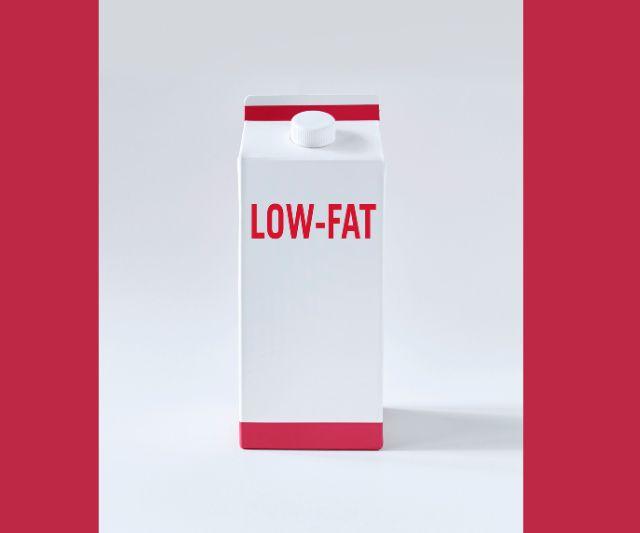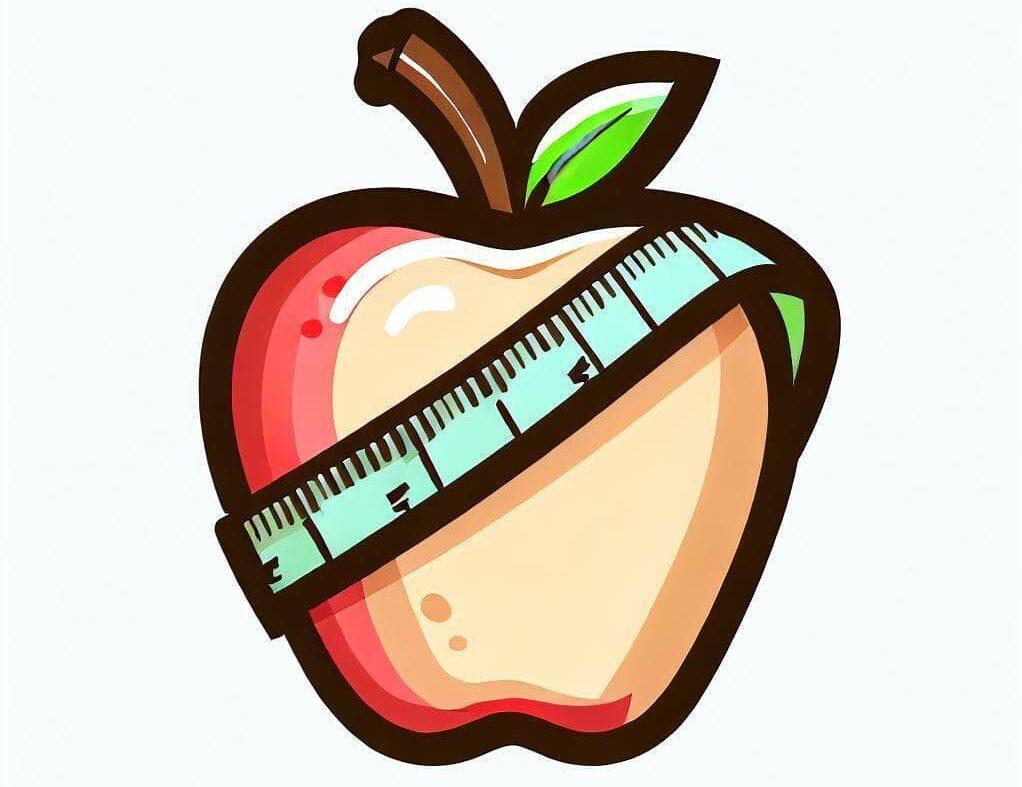Is Chocolate Milk Good For Weight Loss?

“is chocolate milk good for weight loss” In short, no, chocolate milk is generally not considered a go-to option for weight loss due to its added sugars and higher calorie content compared to other beverages.
However, it can be enjoyed in moderation as part of a balanced diet. Let’s go into more detail on this.
Nutritional Value of Chocolate Milk
As per the USDA, 1 cup of chocolate milk contains the following nutrients:
Serving Size: 1 cup (240ml)
- Calories: 211
- Protein: 8 g
- Carbs: 27 g
- Sugar: 25 g
- Fiber: 0 g
- Fat: 8 g
The Potential Benefits of Chocolate Milk for Weight Loss
While chocolate milk may not be an ideal drink for weight loss, it can offer benefits in certain situations.
Post-Workout Recovery

After engaging in strenuous activity, our muscles undergo wear and tear, and the glycogen (a primary source of energy) stores get depleted.
Replenishing these stores is vital to prevent muscle breakdown and to prepare the body for subsequent exercises.
Chocolate milk has a combination of carbohydrates and proteins. Carbohydrates in chocolate help refill the glycogen stores, while the protein in milk (specifically casein and whey) assists in repairing and building muscle tissue.
The 4:1 ratio of carbs to protein in chocolate milk is believed by some researchers to be optimal for muscle recovery.
A study published in the European Journal of Clinical Nutrition found that when compared to a commercial recovery drink, chocolate milk was just as effective, if not more so, in aiding recovery and subsequent performance.
Rich in Calcium and Vitamin D

Weight loss isn’t just about reducing calorie intake but ensuring that the body gets the essential nutrients it needs to function optimally.
Alongside protein, chocolate milk is a rich source of various vital nutrients like calcium, vitamin D, and phosphorus.
Calcium plays a crucial role in muscle function and bone health. Vitamin D aids calcium absorption and has been linked with optimized metabolic health.
Phosphorus, together with calcium, is essential for strengthening bones and teeth.
According to the National Institutes of Health (NIH), adequate calcium and vitamin D throughout life, as part of a well-balanced diet, may reduce the risk of osteoporosis.
This means that even while on a weight loss journey, consuming foods rich in these nutrients is beneficial for overall health.
Satiety

Satiety is the feeling of fullness after eating, which can potentially reduce the need for unnecessary snacking or overeating.
Proteins are known to have a higher satiety index than carbohydrates or fats, making them instrumental in appetite regulation.
Milk, a primary component of chocolate milk, is rich in protein. The protein content can increase feelings of fullness, which might reduce overall food intake throughout the day.
Also Read: Are Aussie Bites Good for Weight Loss?
Downsides of Chocolate Milk for Weight Loss
Why is chocolate milk bad for weight loss? Here are the main reasons.
Caloric Content
At its core, weight loss is about creating a caloric deficit, meaning you burn more calories than you consume. Beverages can contribute significantly to daily caloric intake, especially if they’re calorie-dense.
Chocolate milk contains not only calories from the milk itself but also added sugars from the chocolate.
This means that compared to regular milk, chocolate milk can have a substantially higher calorie content.
A glass of chocolate milk can contain around 211 calories, with 25 g of sugar. In contrast, the same serving of regular low-fat milk contains about 102 calories and 12 g of sugar.
Added Sugars
Excessive intake of added sugars has been associated with several health issues, including an increased risk of obesity, heart disease, and type 2 diabetes.
Moreover, consuming a high amount of added sugars can lead to quick energy spikes followed by crashes, affecting energy levels and mood.
Chocolate milk, mainly commercially produced versions, often contains a considerable amount of added sugars to enhance its sweet taste.
The American Heart Association (AHA) recommends that men limit their intake of added sugars to 36 grams per day and women to 25 grams per day.
Considering that a glass of chocolate milk can contain up to 25 grams of sugar, just one serving can almost meet or exceed these recommendations.
Individual Tolerance
Lactose is a sugar present in milk and dairy products. A significant portion of the global population has difficulty digesting lactose, leading to symptoms like bloating, gas, and diarrhea.
Since chocolate milk is dairy-based, it contains lactose, for those who are lactose intolerant or have a sensitivity to dairy, consuming chocolate milk can lead to gastrointestinal discomfort, which isn’t conducive for those trying to maintain a consistent and comfortable diet for weight loss.
According to the National Institute of Health (NIH), up to 65% of the human population has a reduced ability to digest lactose after infancy. This prevalence is highest in East Asian communities, with estimates reaching between 70 – 100%.
Tips For Adding Chocolate Milk into a Healthy Weight Loss Diet
If you want to keep up your weight loss journey and still drink chocolate milk, here are a few tips.
Moderation is Key
Moderation ensures that you’re not overloading on any single nutrient or calorie source. This approach can help maintain a balanced macronutrient intake, essential for health and weight loss.
Chocolate milk can be a treat or a post-workout drink, but daily or frequent high consumption might lead to excessive calorie and sugar intake.
By enjoying it in moderation, you get the benefits without significantly increasing your daily caloric and sugar intake.
A study found that individuals who successfully maintain weight loss tend to have diets with moderate variety.
This implies that they include a mix of foods but consume them in a controlled manner.
Opt for Low-fat or Skim Options
Low-fat and skim milk varieties contain fewer calories from fat, which can be helpful when you’re aiming to create a caloric deficit for weight loss.
By opting for low-fat or skim chocolate milk, you can still enjoy the beverage’s taste and potential post-workout benefits with fewer calories.
This can be particularly useful for those closely monitoring their calorie intake.
The Dietary Guidelines for Americans suggest choosing low-fat or non-fat dairy products as part of a balanced diet to reduce saturated fat intake, which is associated with higher caloric content and potential risks of heart disease.
Monitor Portion Sizes
Monitoring portion sizes helps regulate calorie intake. It’s easy to consume more calories than expected when not paying attention to serving sizes, especially with beverages, as they don’t always provide the same feeling of fullness as solid foods.
Being conscious of the amount of chocolate milk consumed can allow for its enjoyment without causing a significant caloric surplus.
Opting for a smaller serving allows you to savor the taste while managing your energy intake.
A study published in Advances in Nutrition found that portion size affects calorie intake.
Participants consumed more calories when offered larger portions of snacks and meals, suggesting that controlling portion sizes can play a critical role in managing calorie intake.
Also Read: Best Time to Drink Chia Seeds for Weight Loss
Alternatives to Chocolate Milk for Weight Loss
If you’re considering alternatives to chocolate milk that still offer some of the benefits without the added sugars or potential caloric surplus, Let me give you a few options.
Protein Shakes

Protein is essential for muscle repair and growth, especially post-exercise. It’s also known for its satiating properties, which can help control appetite.
These shakes typically contain high-quality protein sources, such as whey, soy, or plant-based proteins, providing the necessary amino acids for muscle recovery without added sugars.
Studies show that whey protein, in particular, can stimulate muscle protein synthesis more than soy or casein, making it a popular choice for post-exercise recovery.
Unsweetened Almond Milk with Cocoa

Almond milk is naturally lower in calories than cow’s milk and doesn’t contain lactose, making it suitable for those with lactose intolerance.
By adding unsweetened cocoa powder to almond milk, you can enjoy a chocolatey beverage without the added sugars commonly found in chocolate milk.
Water with Electrolyte Tablets

Hydration is crucial, especially after a workout. Electrolytes, which include sodium, potassium, and chloride, help maintain the body’s fluid balance.
When dissolved in water, these tablets offer a low-calorie, sugar-free way to rehydrate and replenish lost electrolytes post-exercise.
Green Smoothies

Green smoothies, made with leafy greens, fruits, and a liquid base, offer a powerhouse of nutrients without excessive calories.
They provide a combination of hydration, vitamins, minerals, and dietary fiber, which aids digestion and promotes satiety.
If you’re looking for an energy boost, consider checking out the best energy drink for weight loss.
Skim Milk or Low-fat Milk

Removing the chocolate component from chocolate milk drastically reduces its sugar content while maintaining the benefits of milk protein.
These options provide the calcium, vitamin D, and protein benefits of milk without the added calories from fat or sugars from chocolate. Alternatively, you could choose to use dark chocolate instead of normal chocolate which usually has less sugar content.
Also Read: Is Lipton Tea Good for Weight Loss?
Conclusion
The debate around chocolate milk and weight loss is multifaceted. On one hand, it can be a delicious post-workout treat offering good recovery nutrients, but on the other hand, its caloric and sugar content might not align with everyone’s weight loss plans.
Like with many foods and beverages, moderation and informed choices are the keys to enjoying chocolate milk while maintaining health goals.
Whatever choice you make, ensure it fits your personal health journey, and always consider consulting with a nutrition expert when making significant dietary changes.
FAQ
Is chocolate milk good for you?
Chocolate milk provides essential nutrients like calcium and protein but also contains added sugars. In moderation, it can be part of a balanced diet.
Is milk good for weight loss?
Milk can be a part of a weight loss diet due to its protein and calcium content. However, calorie intake and overall diet should be monitored.
Why is chocolate milk good for you?
Chocolate milk offers protein, calcium, and specific vitamins. It’s also praised for its post-exercise recovery benefits due to its carbohydrate-to-protein ratio.
Is chocolate milk fattening?
Chocolate milk contains added sugars and calories. Consumed in excess, it can contribute to weight gain.
Does chocolate milk make you gain weight?
Consuming chocolate milk in excessive amounts without compensating through physical activity or dietary adjustments can lead to weight gain due to its calorie and sugar content.
